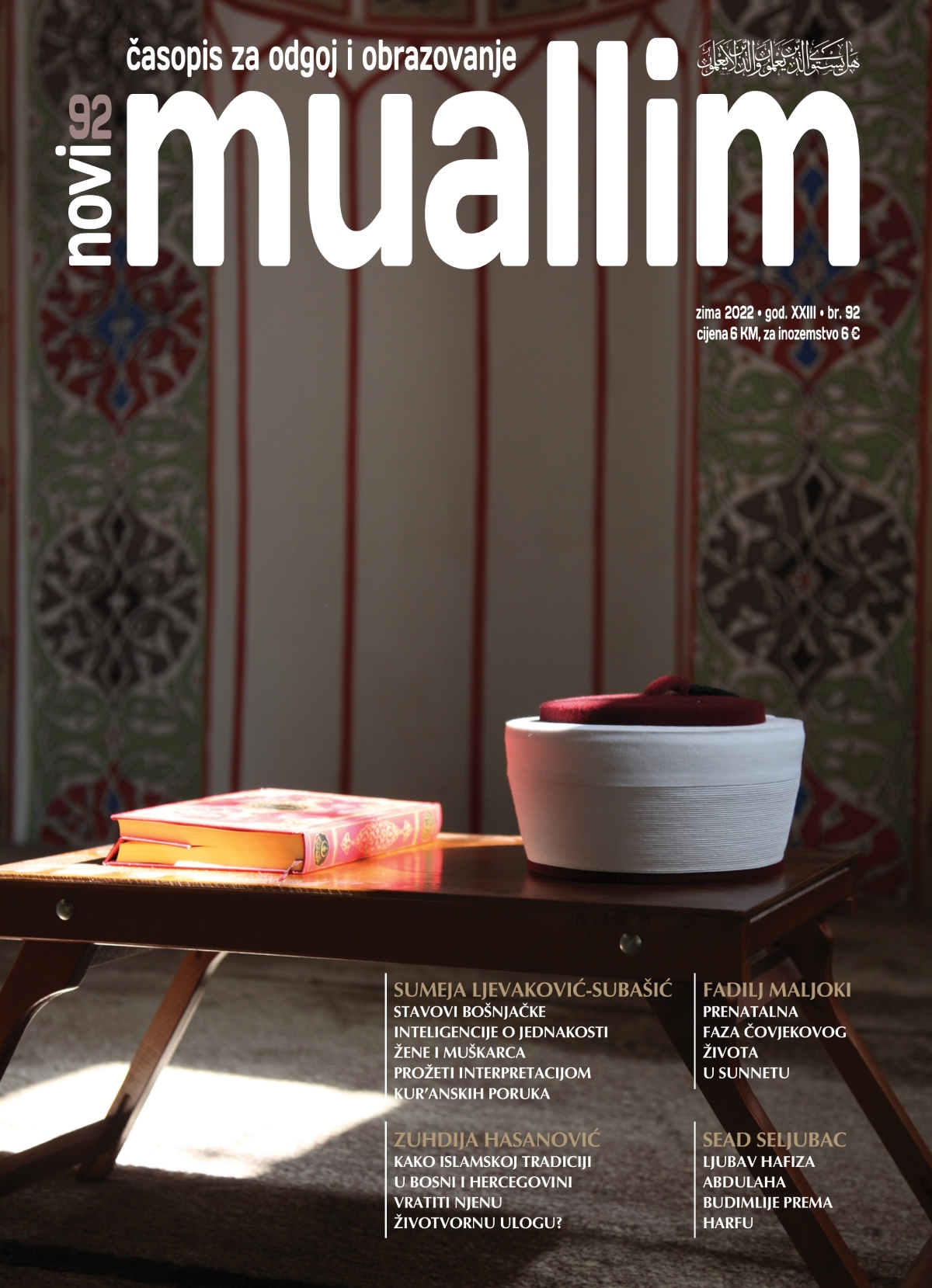AL-GHAZĀLĪ AND THE PHILOSOPHERS IN THE VIEW OF THE OTTOMANS
DOI:
https://doi.org/10.26340/muallim.v23i92.1984Keywords:
Al-Ghazālī, the Ottoman philosophers, sultan Mehhmed II, Hojazadeh, ‘Ala’uddin at-Tusi, Ibn RushdAbstract
UDK: 28-1
This article presents a quite neglected interpretative tradition within the Islamic philosophy – the Ottoman perception of the debate between Abu Hamid al-Ghazālī and the philosophers. It first discusses the negligence of the Ottoman intellectual contributions in general, i.e. its historical background, and then it moves to the discussion about the above-mentioned tradition which was initiated by sultan Mehmed II. Then it analyzes the long chain of commentators who wrote critical insights into earlier discussions about philosophical achievements. Then the article offers a more specific review of the commentaries of Hojazadeh and ‘Ala’uddin at-Tusi, and their critical views of al-Ghazālī’. It also points out the complete absence of the mention of Ibn Rushd in these discussions. The Ottoman authors did not base their views on mere acceptance of al-Ghazālī's arguments, but rather they pointed out his insufficiently substantiated views and criticized contradictions in his arguments when found. Their primary goal was not to establish the new philosophic systems, but rather to have a more thorough approach towards understanding and expanding the existing ideas.
Downloads
Published
How to Cite
Issue
Section
License

This work is licensed under a Creative Commons Attribution 4.0 International License.
Naknada:
a. Časopis ne naplaćuje naknadu za obradu članaka (APC) i naknadu za podnošenje članaka.
Autori koji objavljuju u ovom časopisu pristaju na sljedeće uvijete:
- Autori zadržavaju autorska prava i pružaju časopisu pravo prvog objavljivanja, pri čemu će rad jednu godinu po objavljivanju biti podložan licenci Creative Commons imenovanje koja omogućuje drugima da dijele rad uz uvijet navođenja autorstva i izvornog objavljivanja u ovom časopisu.
- Autori mogu izraditi zasebne, ugovorne aranžmane za ne-ekskluzivnu distribuciju rada objavljenog u časopisu (npr. postavljanje u institucionalni repozitorij ili objavljivanje u knjizi), uz navođenje da je rad izvorno objavljen u ovom časopisu.


